Are you ready to get started with art licensing? If so, you’re in luck with today’s episode. Listen in as Cami shares what she’s learned from licensing artwork to companies like Papyrus. Be sure to grab your notebook because not only is she breaking down common licensing terms you should know before getting started but she’s also digging into the nitty gritty details that go into pricing and entering contracts for these kinds of gigs!
Let’s be friends! Find us on Instagram http://instagram.com/bizbirthdaybash @bizbirthdaybash.
Grab your FREE Training — 4 Essentials You Need to Turn Your Biz into a Profit Party: https://bizbirthdaybash.com/free-training
What is art licensing?
[3:00] Licensing is basically where you’re renting out your artwork for a company to manufacture products with. So you’re not the one like printing all this stuff. You are just giving them the file and they are making all kinds of cool things. So art licensing is like an absolutely huge industry, but I feel like it’s kind of mysterious for everybody.
Everyone’s like, how do I get into this? Like, because there is like so much money to be made, but also. Like the percentages are really low. It’s just like a very interesting segment of the art world.
But anything you look at in a store that has a pattern or some kind of design that is all art licensing, like these companies aren’t like in there sketching things up themselves, like we are, they are hiring out artists. So I mean, you go to home goods and you just look at like all the plates that have like little bunnies on them or dish towels or, you know, all kinds of things. We have art licensing on them. So it’s really cool. If you can create some opportunities for yourself there, there really is endless amounts of work to find.
What is the grant of license?
[7:32] This is the meat and potatoes of everything and it outlines all the nitty-gritty details.
Is it an Exclusive license or Non-exclusive license? I’ve done both! To me, they also warrant different payments. The exclusive license can mean more than just ‘no one else can use this.’ It can be ‘space specific’ as well. For example, they have the exclusive license to use your artwork for paper cups. That means you could still use it for greeting cards. You want them to really outline the product categories and make it clear so you can get the most bang for your buck with your work!
Another word for exclusive is non-compete.
Term: how long will the license last?
The Works: basically your artwork! Derivative works: taking your artwork and making new things from it.
Royalty [14:10] You’re paid based on how many units are sold. It’s also important to distinguish exactly what the royalties are paid on. Is it gross sales or net sales? An average royalty is 3-12%. You can totally negotiate this.
Questions to ask yourself before entering a licensing agreement:
[28:22] I just wanted to talk about things that you’ll want to kind of be aware of when you’re entering licensing agreements with people or starting to consider this. Just some questions to ask yourself. Such as I’ll just go through them:
-
How long does the agreement last?
-
What products are your images and artwork going to be on?
-
Where are they going to be sold?
-
How much are you going to be paid in advance and in royalties? Or is it one, or is it the other?
-
How often am I getting my check from you?
-
How do I get out of this contract if I want to?
Understanding how you can end the agreement is crucial because you guys, like if there is a situation where I don’t know, like, let’s say like American Flat goes off the rails and does something crazy and Cami is like, whoa, this isn’t the right fit anymore. It would be good to understand how that agreement like, and that relationship would come to an end. Yeah, exactly.
And like where our products can, where are the things going to be sold? Um, I think that’s a really good question because if you are worried about. Your brand integrity and your brand vision, like what you want your brand to look like? Like, I want mine to be kind of high-end. So if they’re like, we’re putting this and dollar general and gas stations all over the country, I’d be like, that’s not really like where I want my products to be necessarily like, or my work to be.
And sometimes if it’s like, if I’m making money from it, I probably wouldn’t care. Um, but Sunday to ask, you know, if something to consider like, oh, I don’t want my products. They’re like that cheapens the look of what I’m going for. So something to ask, you know, where are they going to be? Like, I feel like target and whole foods, that kind of thing.
I’m like, great. I love my products. They’re like, it’s really cool. Um, yeah, definitely something, something to ask as well. And then like what type of products are you making from this? I mean, most of those things I worked with have been like paper goods, but if they were like, I don’t, I didn’t even know, like, what’s something I wouldn’t want it on, but like something weird and you’re like, oh, I don’t want to be any part of this.
Like, you need to ask those types of things just to make sure you’re very clear on what the agreement looks like. And that’ll be in the terms too. And so you can ask them, oh, well, if you’re using it on paper plates, can I make paper cups with this? And I’m just clarifying all those differences.
Tips on how to negotiate terms in a licensing agreement
[9:40] Don’t be afraid to negotiate either. For instance, recently a company wanted to use my butterfly artwork, my rainbow butterflies, and my rainbow flowers. And I’m like, well, I want to still be able to use that. Like, I have a lot of products with it. It’s like one of my favorite works. I want to be able to use that for things. So we negotiated where it would be non-exclusive cause they wanted to buy the artwork.
So I said they can use it, but I still want to be able to. For all the things that I, I make too, but I’m not going to license it out to anyone else only I can license only I can use it. So we had to like negotiate that and come up with them some terms for that. So I always push for nonexclusive because you get the most bang for your buck because you can reuse the artwork a lot.
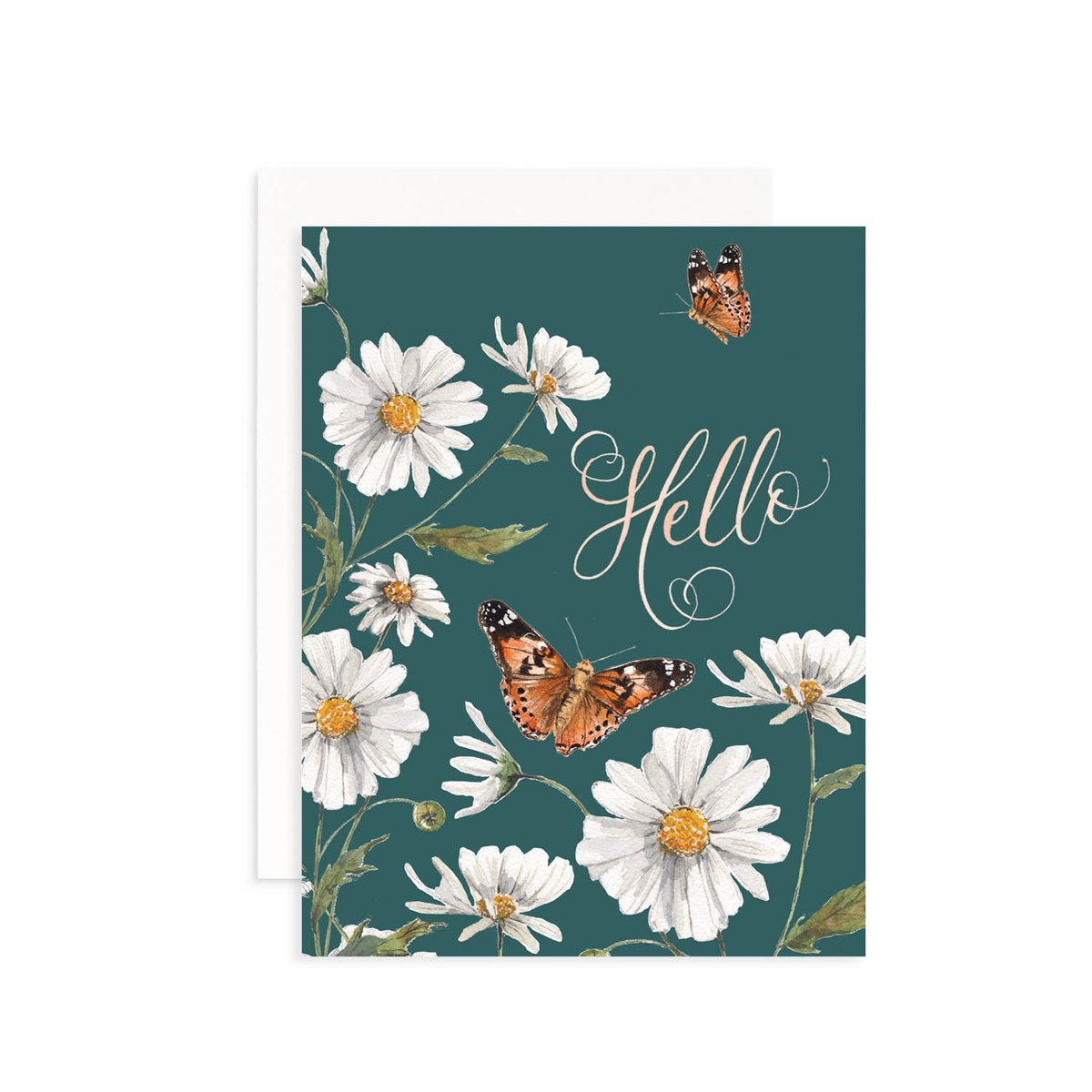
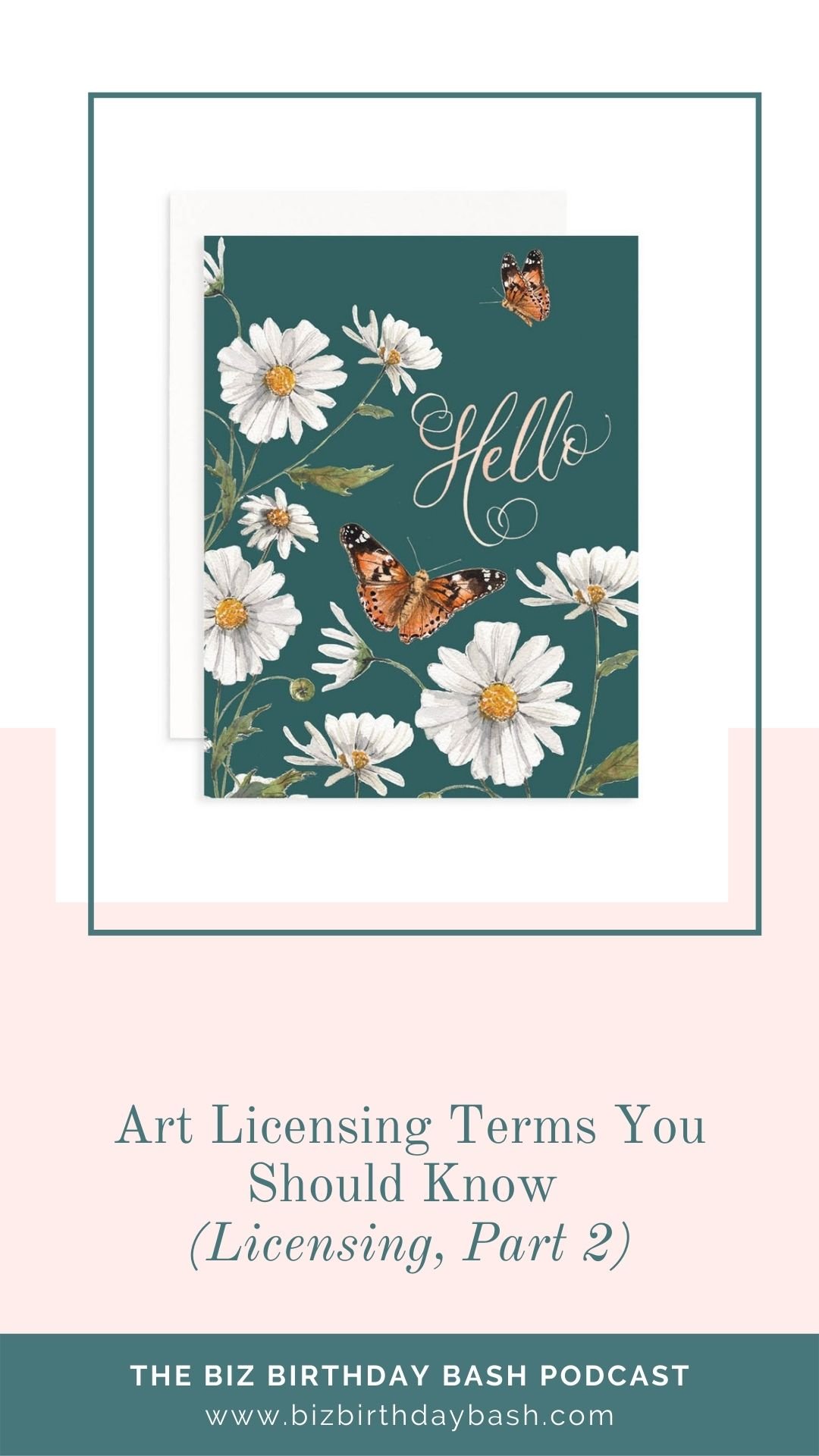
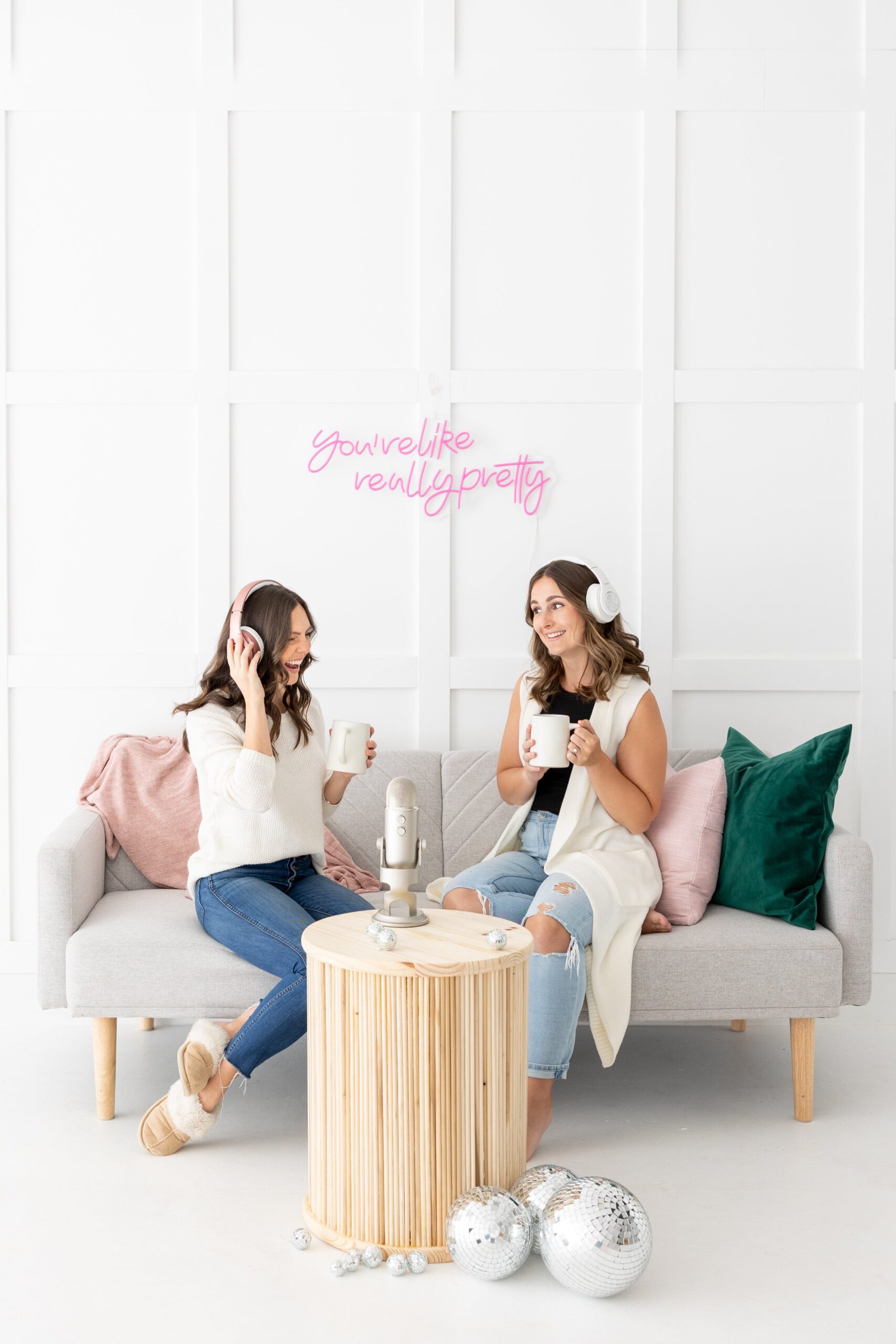
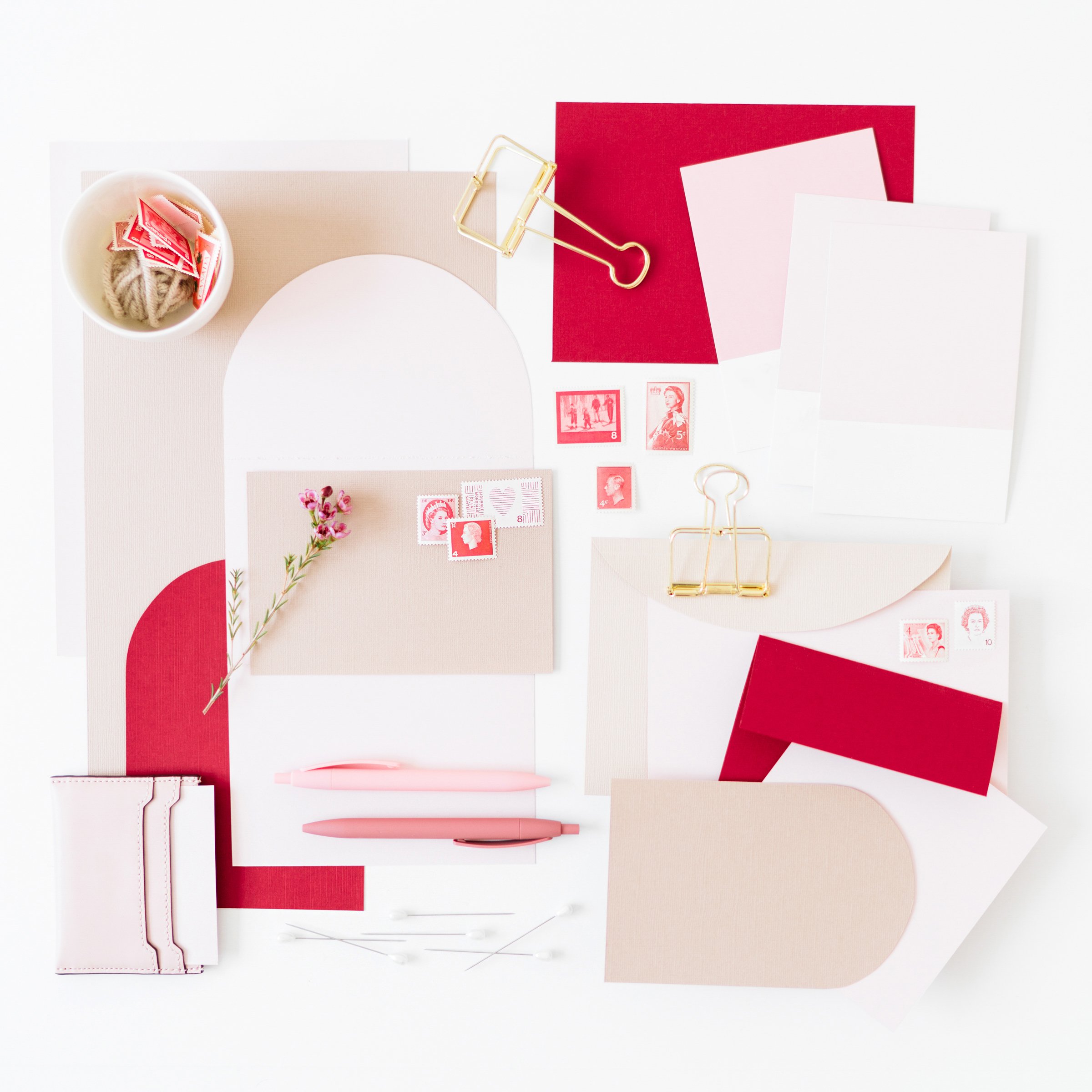
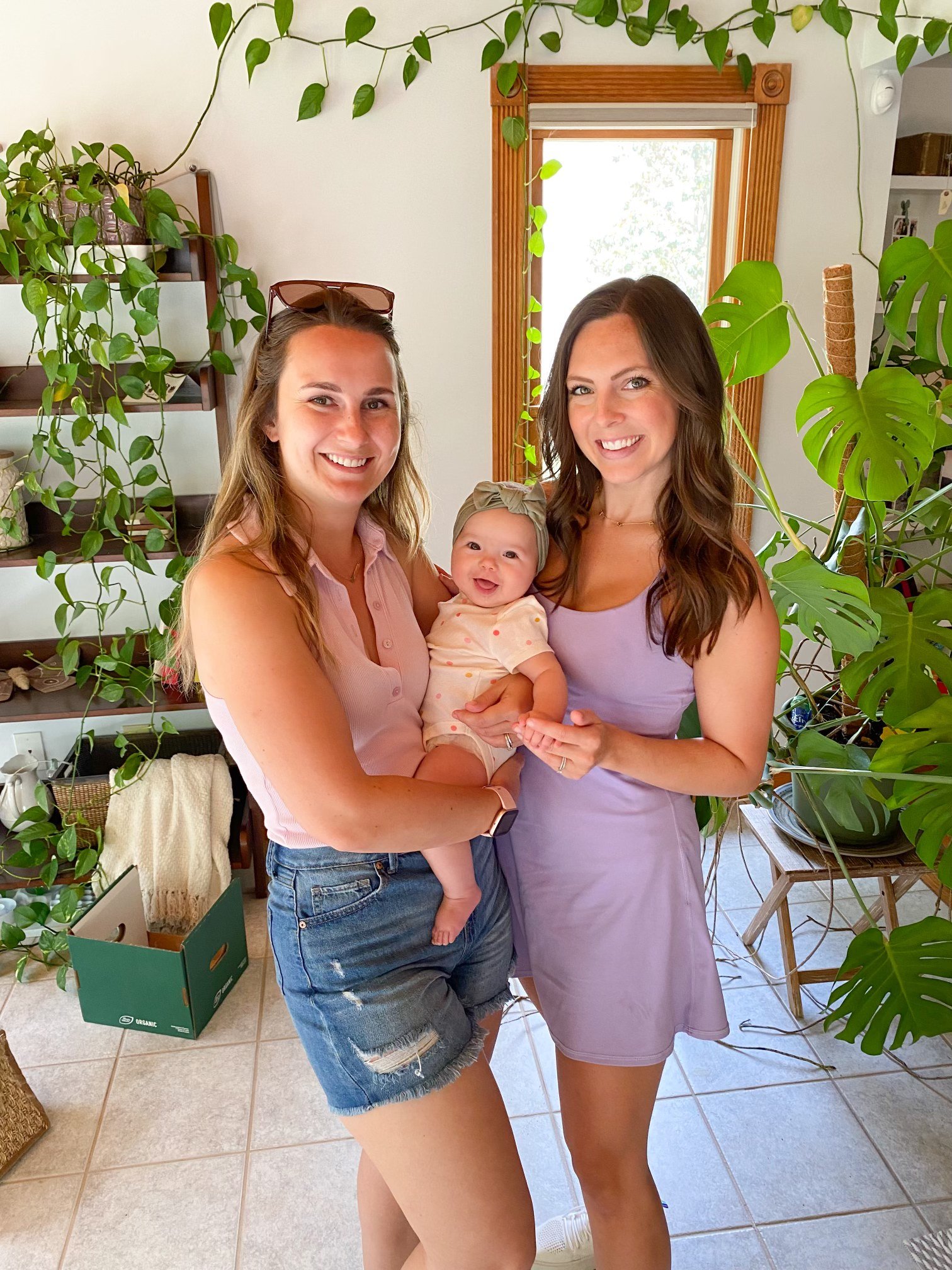
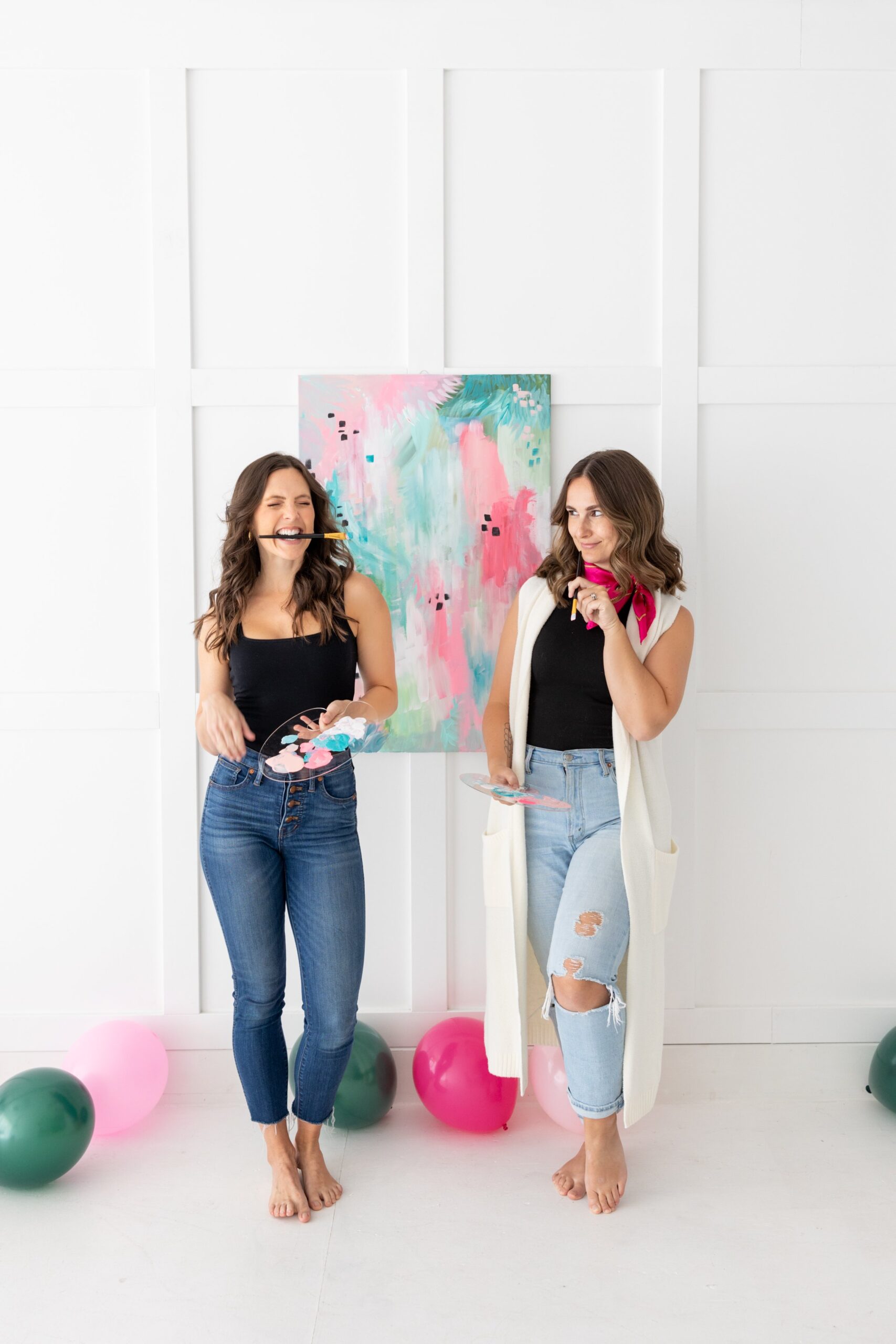
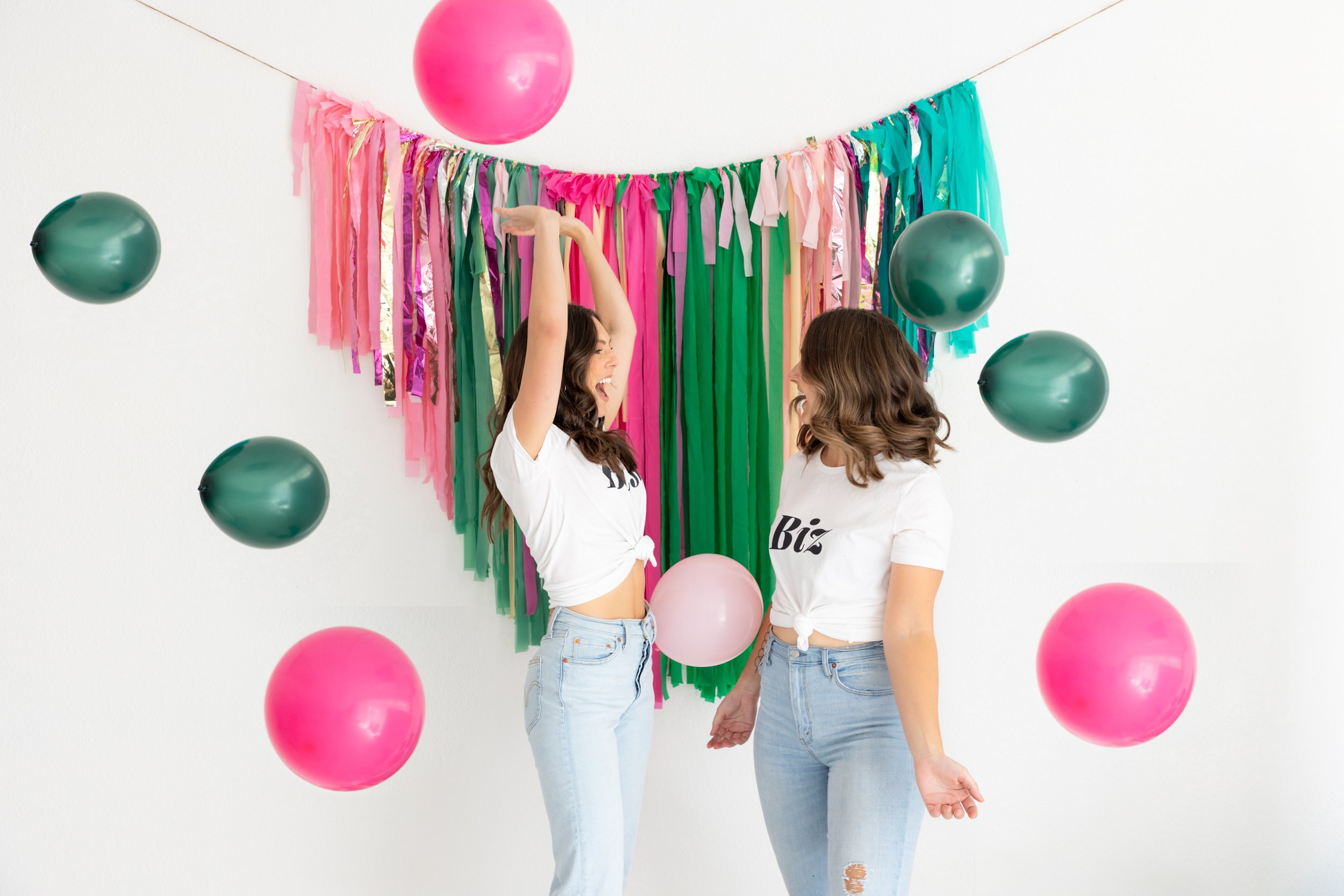
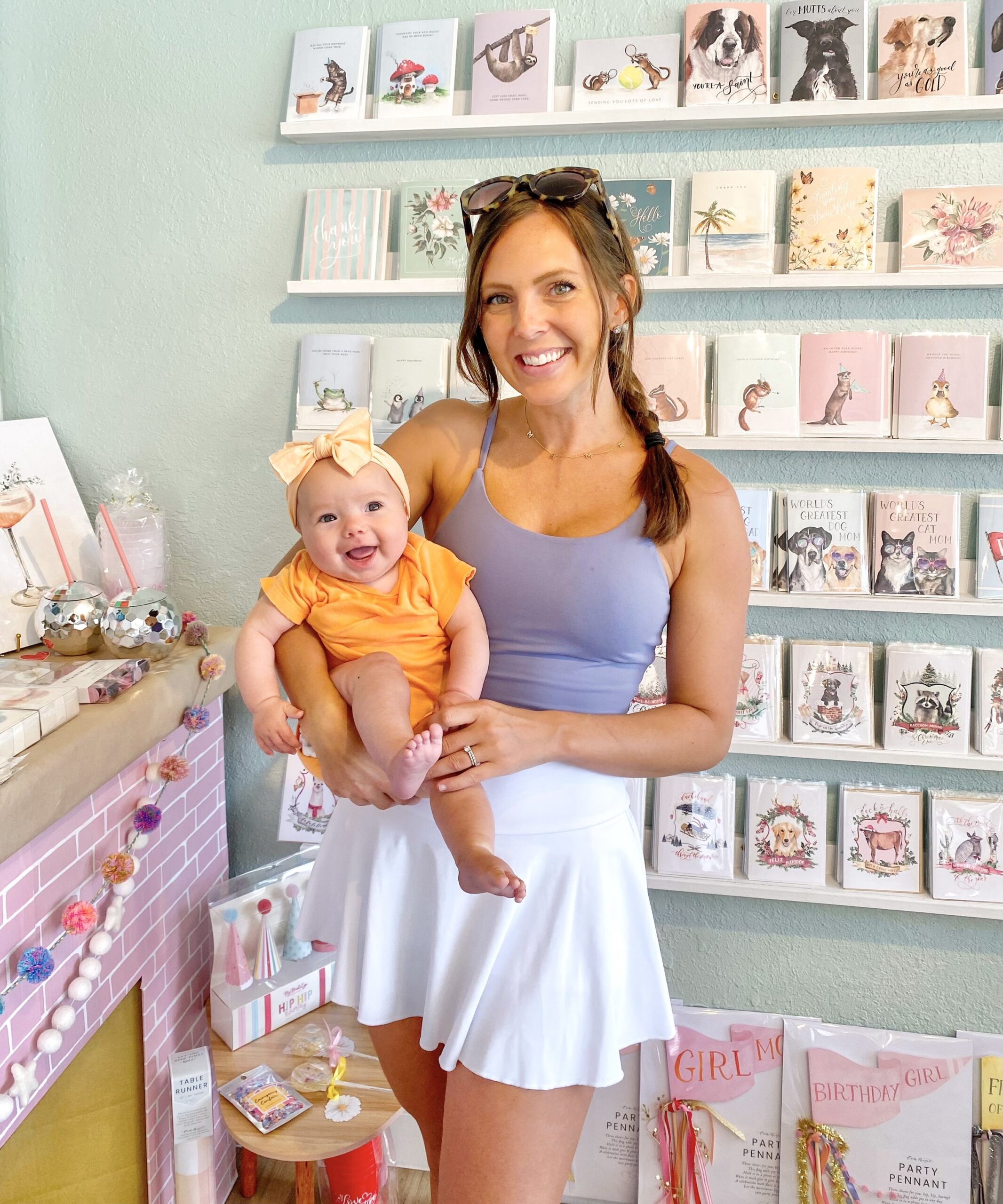
+ show Comments
- Hide Comments
add a comment